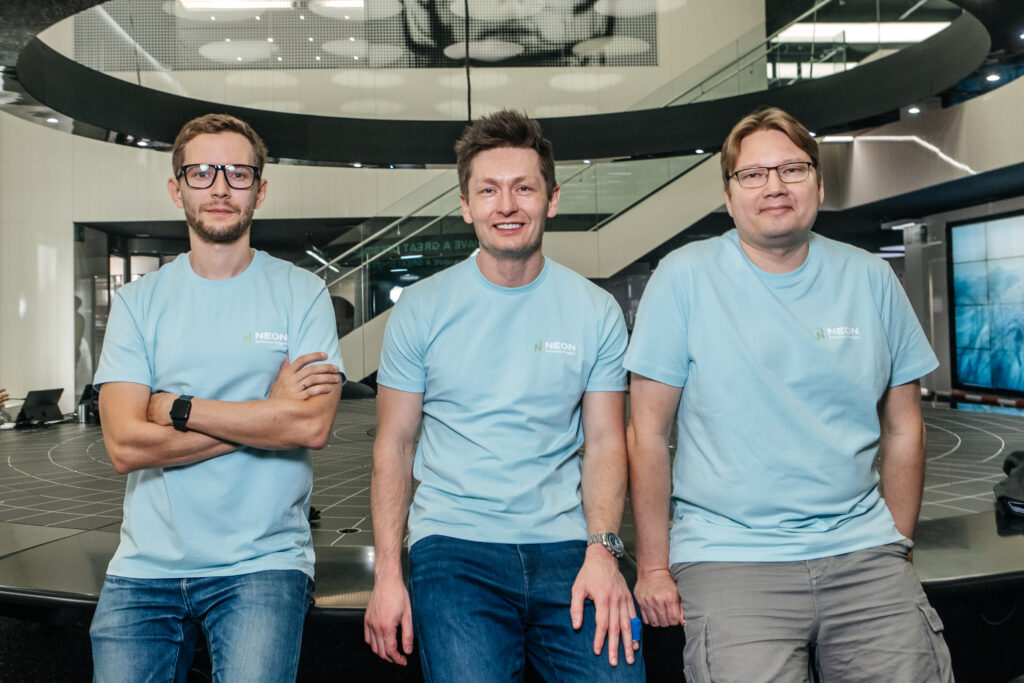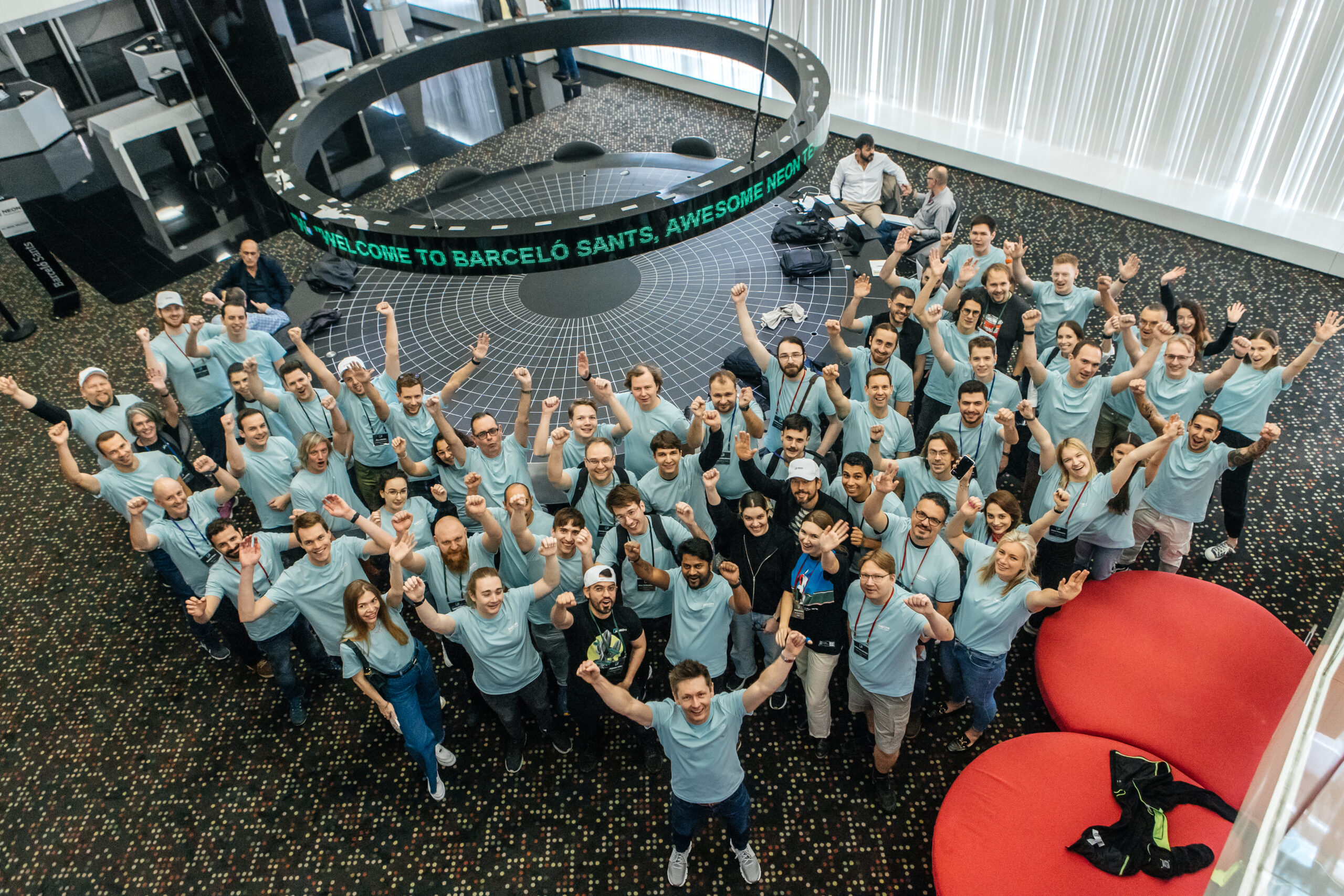In August 2024, M12 made a strategic investment in Neon, a serverless Postgres database designed for modern developers, to the tune of $25.6M. This investment was made alongside existing investors Abstract Ventures, General Catalyst, Menlo Ventures, and Notable Capital.
In a feature with TechCrunch, M12 managing partner Andrew Smyth explained, “Postgres is quickly becoming the database of choice for developers and we are investing heavily in that ecosystem. Neon is a leading Postgres platform and this strategic investment emphasizes our commitment to deeply integrate Neon into Azure.”
In this edition of Founders Feature, we connected with Neon Founder and CEO Nikita Shamgunov to learn more about the evolving developer landscape, how Neon has adapted to industry needs and expectations over time, and valuable advice for fellow founders. Here’s what he had to share:
What problem were you trying to solve when you founded Neon?

Nikita: I’ve had this idea for about seven years now, even back when I was running SingleStore. The core problem I was thinking about was how to become the default database for the broadest set of use cases. At SingleStore, we were solving very high-end workloads, powering multi-million dollar contracts for enterprises. But that’s a niche. There are far more bread-and-butter workloads out there—startups, mid-market companies, developers just trying to ship an app. And for those, the default choices were Postgres and MySQL.
So, I started looking deeper at Postgres. It was everywhere. But no one really owned it—there wasn’t a dominant vendor like MongoDB was for document databases. I thought, “That’s interesting.” But it wasn’t enough to just pick Postgres and go. You need a technology moat, something truly differentiated.
That’s when I studied AWS Aurora and realized the key insight: separating storage and compute makes a database much better suited for the cloud. Aurora had done it, but it was proprietary. So I thought: What if we build an open-source, serverless Postgres with true separation of storage and compute? That was the founding insight behind Neon.
We built multi-tenant, scalable cloud storage for Postgres and made compute fully ephemeral and elastic. And we did it as open source so developers could trust and build on it without lock-in. Then we layered on developer experience, integrating deeply with JavaScript frameworks, serverless platforms, and the modern dev lifecycle. That’s what makes Neon what it is today.
Who are your main competitors, and what sets you apart from them?
Nikita: There are three categories of competitors we think about:
1. Amazon RDS / AWS Aurora – This is the biggest one. Aurora is a great product, but it’s proprietary, tied to AWS, and not truly serverless. You’re still provisioning instances and dealing with limits. Neon is truly serverless—you don’t pay for idle compute, and we separate storage at a deeper architectural level. Plus, we’re open source.
2. Supabase – Supabase is doing a great job in the developer ecosystem, but they’re focused more on being a Firebase alternative—a backend with auth, APIs, etc. They use vanilla Postgres under the hood. Neon is much more Postgres-native, built for scalability, branching, and modern cloud architectures.
3. Google AlloyDB / Microsoft’s Postgres offerings – Google launched AlloyDB right after we started, which was validating. Microsoft is also investing in Postgres, now being our close partner. These are big cloud offerings, but again, Neon can move faster and stay closer to the developer.
What sets us apart? True separation of storage and compute, serverless pricing, developer experience, and open source. No one else has that full combination.
What has been the biggest challenge Neon has faced so far, and how did you overcome it?
Nikita: Scaling reliability was the biggest challenge. We launched fast, saw exponential user growth, and then things started breaking. Around a year ago, all hell broke loose—outages, performance issues. Our competitors were subtweeting us on Twitter, customers were getting frustrated, and our partners—like Vercel—were sending me angry messages. That was rough.
The fix? Hiring the right team. We built out an excellent executive team—brought in a VP of Engineering from MongoDB, a VP of Product from GitHub. We systematically improved our reliability, observability, and internal processes. If you look at our incident curve, it steeply drops after that.
We also stayed transparent. We have a public status page, we reach out to users when something goes wrong, and we kept a free tier so we could battle-test the system at scale. That approach worked—today, Neon is incredibly stable and growing fast.

What trends do you see in your industry that excite you?
Nikita: We’re seeing massive shifts:
1. AI Agents & the Rise of the AI Engineer – The way software is being built is changing. Developers aren’t just writing code anymore—they’re orchestrating AI agents to write code for them. Tools like Cursor, Copilot, GPT are making AI-assisted coding the norm. In the future, every developer will be an AI Engineer, collaborating with agents that handle repetitive tasks, optimize performance, and even deploy infrastructure.
2. AI & Vector Databases – Every AI application needs a database. The retrieval-augmented generation (RAG) stack is the new search, and we’re making sure Neon is a core part of it. We’re competing with Pinecone, Weaviate, and others, but we’re integrated into Postgres, which gives us an advantage.
3. AI-powered database automation (DBA) – There’s also the idea of AI as your DBA. Most databases need manual tuning, index management, query optimization. What if an AI handled that? We’re actively thinking about this—turning database management into an AI-driven system that automates maintenance, scaling, and performance tuning.
These shifts we’re seeing indicate databases need to adapt. AI Agents need persistent memory—which means databases need to be faster, more elastic, and easier to integrate into automated workflows. Neon is perfectly positioned for this—serverless, autoscaling, and deeply integrated into modern dev environments.
The industry is shifting toward automation, self-healing databases, AI-driven infrastructure, and AI-assisted development. Neon is at the center of it all.
What has been your experience with fundraising so far?
Nikita: We incubated Neon at Khosla Ventures, and having someone like Vinod Khosla behind you is huge. We raised fast, got great investors, and have strong backing.
Our valuation grew quickly because we had a clear market fit, deep technical innovation, and insane developer adoption. GitHub stars, Hacker News, organic signups—it all compounded.
A big thing I learned? VCs love asymmetric bets. If they see a chance to build a massive business, they’ll take the risk. Neon isn’t just a database—it’s the default Postgres for the modern cloud. That’s a massive market, so investors bet big on us.
What advice would you give to someone who is just starting out in the startup world?
Nikita: I’ll steal this from Guillermo Rauch at Vercel: Keep developing your taste.
Taste is everything. AI is making coding cheaper, but taste and vision still matter. You need to deeply understand what makes a great product, a great experience, and a great business.
Other advice:
1. Study the competition – When I started Neon, I studied Red Hat, MongoDB, Aurora. I talked to people who built those businesses. You need to understand the market better than anyone.
2. Get the right mentors – A coach is different from a mentor. A mentor can be free, but pay for a coach—someone to help you think clearly, manage stress, and make better decisions.
3. Your first hires define your company – I engineered the Neon founding team. I called every Postgres committer I knew. The team you build is the company you build.
4. Use free tiers & developer love to grow – We got 150,000+ databases in 2 years by making Neon easy to try, easy to love, and open source. The best DevTools companies grow from bottom-up adoption.
5. Be brutally honest with yourself – Prioritize ONE thing at a time. If you have five priorities, you’ll procrastinate on the hard ones. Audit your calendar—if it doesn’t reflect your priorities, you’re failing.
